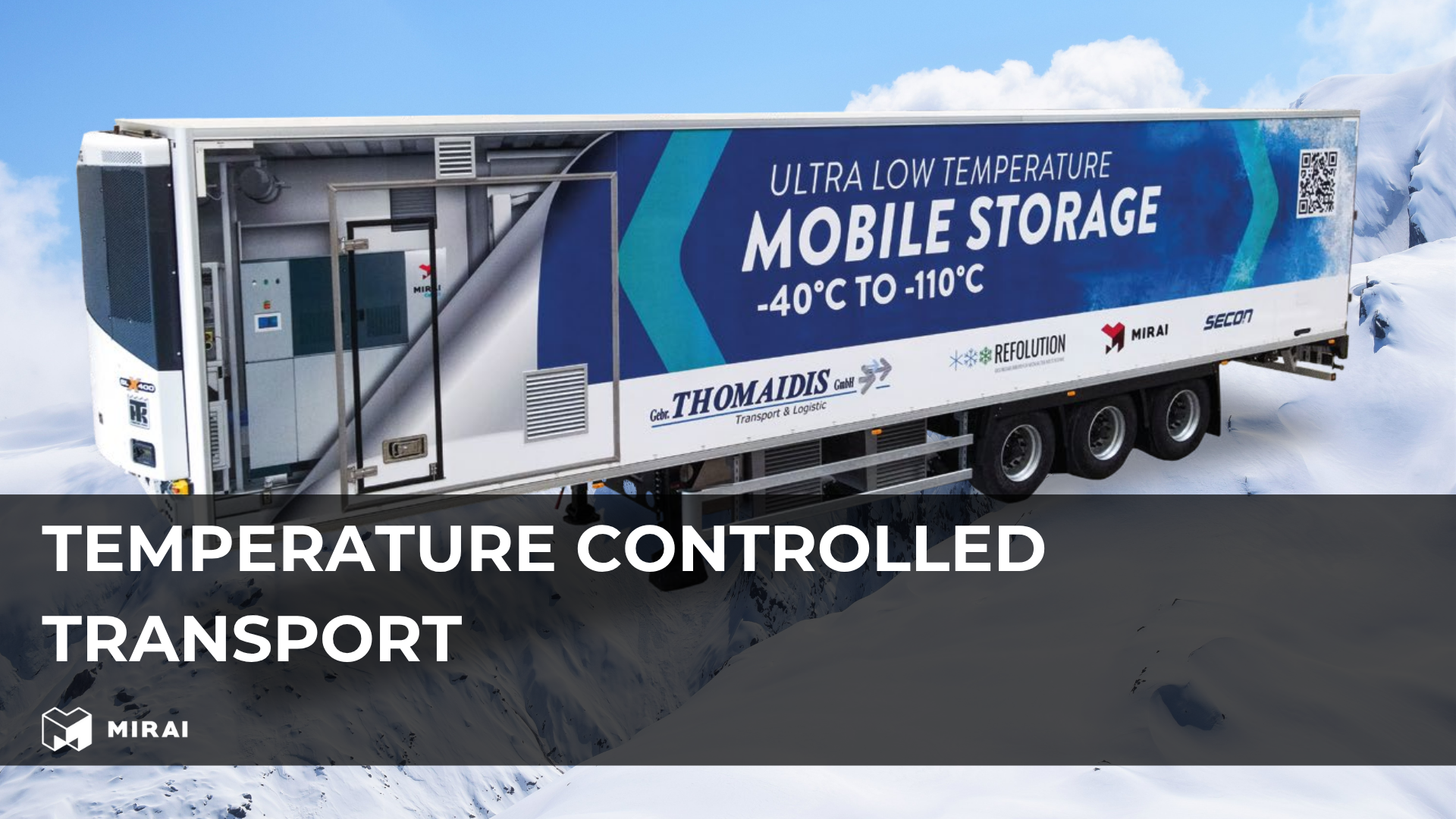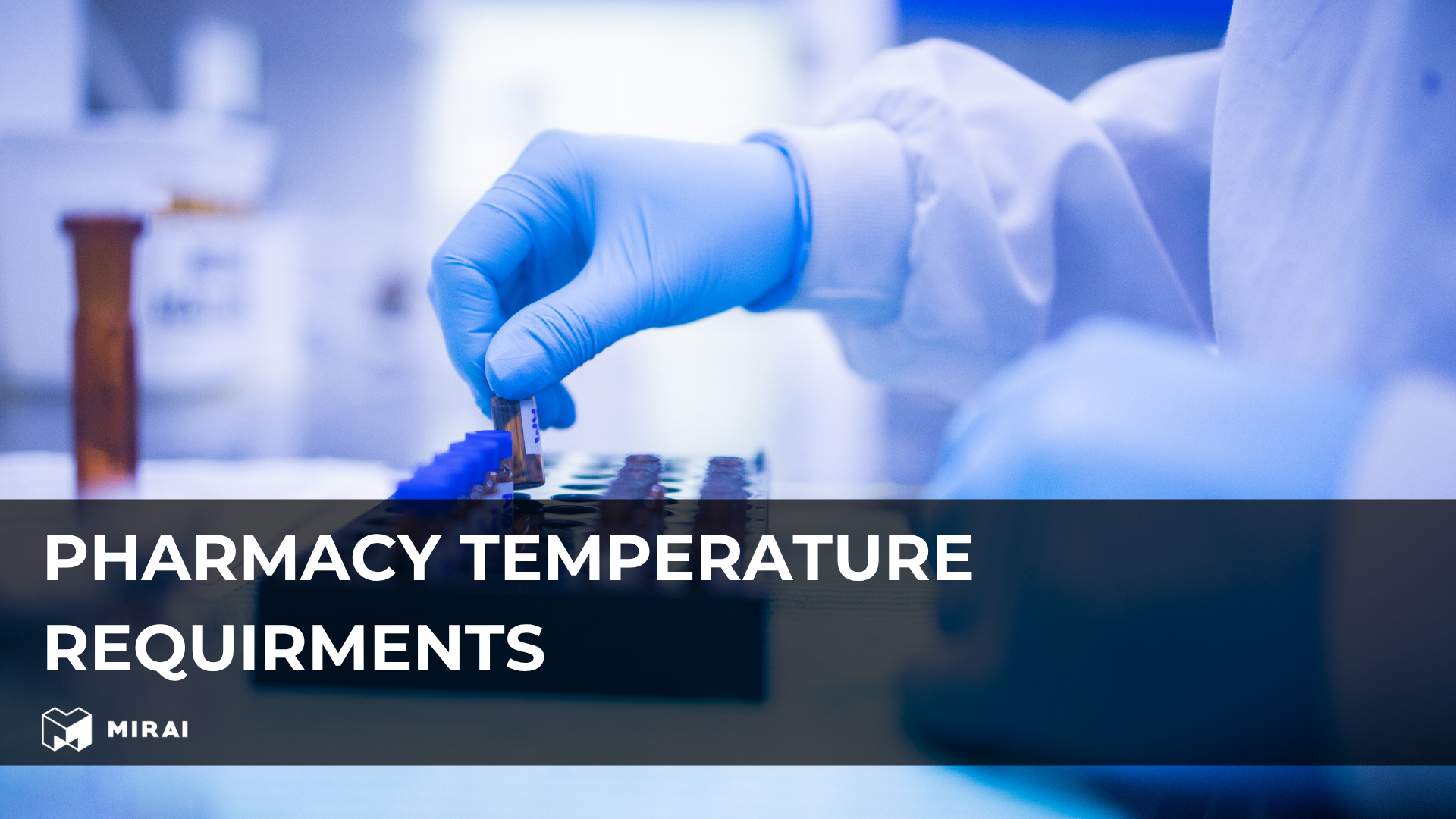Pharmaceutical Temperature Controlled Transport

Temperature controlled transportation involves moving goods while keeping them within a specific temperature range. This helps ensure safety, quality, and stability. This type of transport is crucial for industries dealing with temperature-sensitive products like pharmaceutical cargo, biotech materials, fresh food, and specialty chemicals. Reliable vehicles, creative cooling solutions, proper storage, and efficient distribution are essential for a secure temperature-controlled supply chain. Maintaining the correct temperature reduces losses, keeps products compliant with regulations, and protects end users.
Key concepts in temperature controlled logistics
In temperature controlled logistics, every step, from production to final delivery, must maintain the required temperature range. Sensitive products can quickly lose value or become unsafe if exposed to temperature changes. Key ideas include:
- End-to-end temperature integrity: Keeping the right temperature in storage, trucking, courier services, and warehouses.
- Visibility and monitoring: Real-time tracking ensures safe temperature-controlled shipping.
- Regulatory compliance: Meeting pharmaceutical and environmental rules while avoiding F gas restrictions.
- Scalable solutions: Supporting different vehicle types, haulage needs, and global distribution networks.
These principles protect products and improve supply chain performance.
Core components of temperature controlled transport
Reliable temperature controlled freight shipping relies on several key components that work together to ensure product quality.
Vehicles and equipment
Specialized trucks and trailers play a central role in this process. They include:
- Refrigerated trucks with modern cooling units
- Insulated containers for air and courier operations
- Air cycle cooling machines developed by technology leaders like Mirai Intex
Mirai Intex offers innovative refrigeration systems that are easy for manufacturers and fleet operators to integrate. Their solutions are lightweight, reliable, and simple to install. Because they use natural air instead of synthetic gases, operators avoid F gas regulations and future environmental restrictions. These systems can operate across a wide temperature range from +90°C to −160°C, making them suitable for deep cold hauling and pharmaceutical shipping.
Storage and distribution
Safe storage and smooth distribution protect goods before and during transport. Modern temperature controlled facilities include:
- Deep freeze cold rooms and long-term storage
- Cross-docking hubs to reduce exposure time
- Regional distribution centers with backup cooling and a stable energy supply
Using air cycle refrigeration from Mirai Intex allows warehouses and hubs to operate efficiently and sustainably without harmful refrigerants. This creates a greener supply chain and reduces long-term operational risk.
Monitoring and technology
Smart technology keeps temperature-controlled logistics accurate and dependable.
IoT sensors track temperature and humidity in real time.
Telematics systems alert managers if conditions change during transit.
Data analytics predicts failures, improves routes, and ensures compliance for pharmaceutical cargo.
When combined with Mirai’s efficient air cycle machines, these tools help companies achieve reliable temperature-controlled transportation, even at ultra-low levels down to -160°C.
Mirai products supporting temperature-controlled shipping
Mirai Intex offers air cycle refrigeration machines for temperature-controlled freight shipping that provide clear benefits:
- Ultra-low temperature range from -160°C to -40°C, with operation up to +90°C
- Easy integration into trucks, trailers, and storage systems
- Environmentally safe air refrigerant with no F-gas regulation concerns
- Lightweight, efficient, and durable construction
- Quick installation and long service life with minimal maintenance
A notable example of their expertise is the project completed with Thomaidis, a specialized logistics and engineering company. Together, they implemented deep cold transport solutions for sensitive pharmaceutical cargo and biotech products. The collaboration showed how Mirai technology fits smoothly into complex supply chains, providing reliable cooling while meeting strict environmental and regulatory demands.
Temperature-sensitive transport in pharma
Pharmaceutical cargo places high demands on temperature-controlled logistics. Vaccines, biologics, and gene therapies can lose effectiveness if the temperature changes even briefly. The industry requires:
- Strict temperature validation and mapping at every stage
- Full compliance with Good Distribution Practices (GDP)
- Secure last-mile delivery using specialized couriers and trucks with validated cooling
The need for ultra-low temperatures is growing. Many modern therapies must be transported well below -40°C, sometimes down to -160°C. Traditional systems using synthetic refrigerants often struggle in this range or face strict F-gas regulations. Mirai Intex meets these challenges by offering sustainable air cycle cooling with reliable deep cold performance, helping pharmaceutical companies and carriers maintain compliance and product integrity.
Innovations and future trends in temperature-controlled logistics
The temperature-controlled freight shipping industry is evolving rapidly. Important trends include:
- Eco-friendly refrigeration replacing harmful F-gases with natural air systems, where Mirai Intex is a leader
- Smart connected fleets where trucks and haulage vehicles use predictive maintenance to avoid breakdowns
- Modular cold storage that scales to demand peaks, such as vaccine rollouts
- Decarbonization and reduced energy use through lightweight, efficient cooling solutions
- Transparent supply chains with blockchain and data analytics to ensure compliance for pharmaceutical cargo
- Ultra-cold expansion as biotech and food industries require reliable -160°C capability
Mirai Intex is investing in these areas, delivering systems that combine high efficiency, environmental safety, and seamless integration for OEMs and logistics providers worldwide.
Why businesses choose Mirai Intex solutions
When choosing temperature-controlled shipping technology, companies need more than basic cooling. They seek reliability, efficiency, and easy integration with existing fleets and storage infrastructure. Mirai Intex delivers:
- Flexibility for OEM manufacturers and retrofit projects
- Sustainability through air cycle refrigeration with no F-gas regulation risk
- Performance across a wide temperature range from +90°C to -160°C
- Efficiency with reduced energy use and operational costs
- Reliability proven by successful projects like the Thomaidis collaboration
These advantages make Mirai Intex a trusted partner for logistics companies, trucking fleets, and couriers looking to expand temperature-controlled transportation capabilities without future compliance worries.
Conclusion
Creating a reliable temperature-controlled supply chain means combining specialized vehicles, intelligent monitoring, efficient storage, and sustainable cooling systems. Industries handling temperature-sensitive goods, especially pharmaceutical cargo, rely on stable temperature control to protect product value and meet regulations. Mirai Intex provides air cycle refrigeration technology that delivers deep cold performance from -160°C to -40°C, operates safely up to +90°C, and avoids F-gas regulations. Their partnership with Thomaidis highlights their ability to integrate seamlessly into complex projects. For companies seeking efficient, eco-friendly, and future-ready temperature-controlled freight shipping, Mirai Intex offers a dependable and innovative solution.

